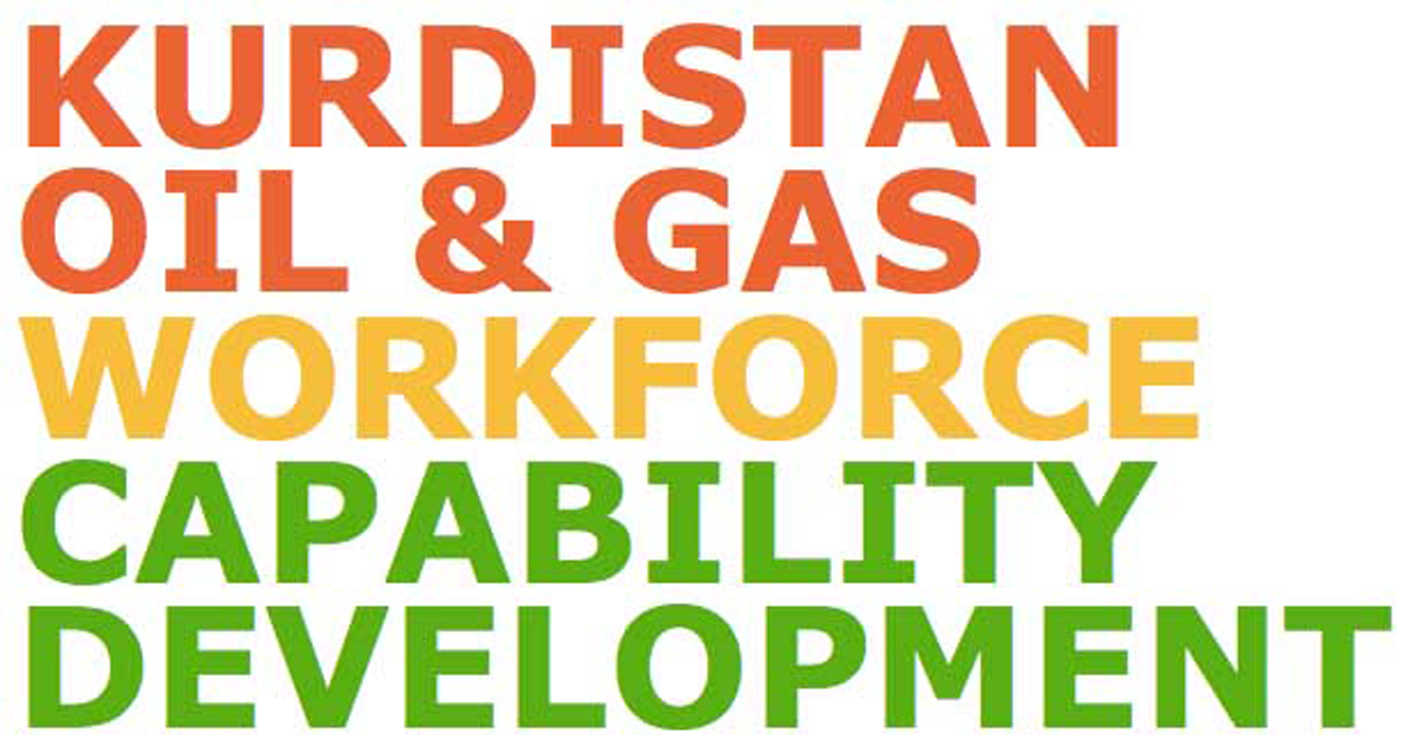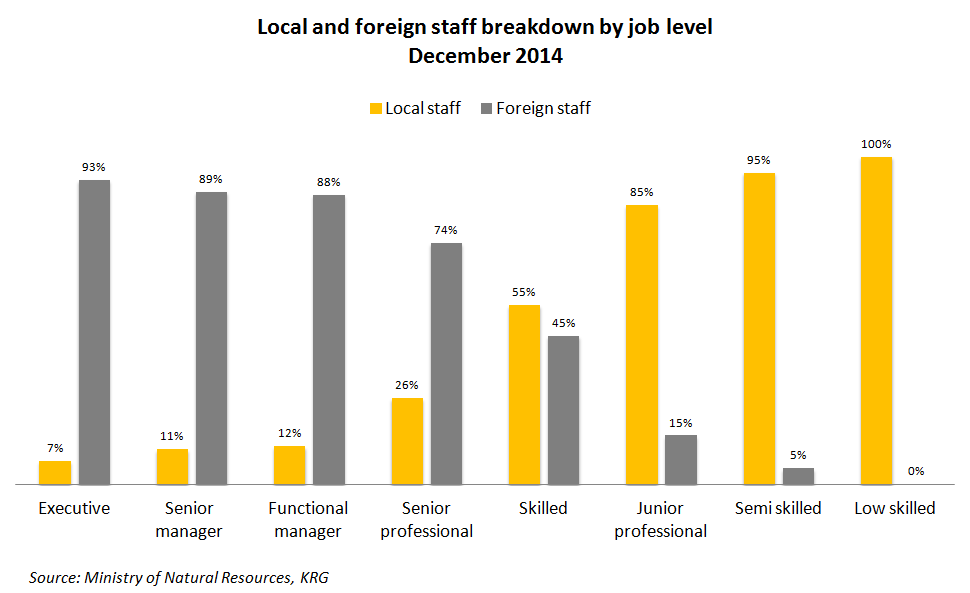
Who is going to manage the oil and gas industry of the future in Kurdistan?
By Ian McIntosh, Adviser on Local Workforce Development, KRG Ministry of Natural Resources
The challenge: How to develop Kurds for senior positions
Take a look at the global oil and gas business and you will see that senior managers and executives are often petroleum engineers or geoscientists. This industry is highly technical. Both exploration and production companies as well as service companies require creative technical management to be successful.
At the senior management level in the 25 international oil companies (IOCs) operating in Kurdistan, you will find that only 10% are Kurds. However, this is totally understandable given that most senior managers have at least 25 years experience and the oil and gas industry in Kurdistan is realistically only ten years old. Certainly there were Kurds working in the Iraqi oil and gas industry previously, but an insufficient number to make a big impact on this rapidly expanding business in Kurdistan. There is currently only one operating company (out of 25) that is Kurdish owned, but there are a growing number of Kurdish service companies.
So, we would assume that IOCs are actively recruiting local graduates to train and develop to become the next generation of managers of their business in Kurdistan. Unfortunately that is only partly true.
The following diagram illustrates the status of local and expatriate employment in the IOCs in the Region. In the lower skilled roles (including recent graduates), the Kurdish representation is high, and conversely at senior levels most roles are filled by expatriates. The challenge facing the Region is to develop the senior staff to take over the reins of the business. But it will take time.

The IOCs directly employ some 600 or more local graduates (out of around 1,500 professional staff) in Kurdistan, of whom most have less than five years experience. And of those graduates, only half are petroleum engineers and geologists. The talent pool for future managers is growing but is not yet significant enough. IOCs still very much rely on senior expatriate staff and often respond to the challenge of developing senior Kurdish staff by saying that they cannot find the quality of graduates they need.
Compelling need for more industry-university dialogue
Leaving aside other possible reasons for the apparently slow response to the future needs of the Region, some companies are beginning to realise that in order for them to recruit, train and develop the young engineering and geoscience graduates they need for the future, they will have to help improve the quality of education that the graduates receive from the universities in Kurdistan.
Consequently, certain IOCs and a few oilfield service companies (OSCs) have started to reach out to the universities. About half of the IOCs are already participating in liaison and advisory boards with, so far, the universities of Duhok, Koya and Kurdistan-Hawler. These boards bring seasoned industry staff face to face with university faculty members to discuss how each can help the other. The goal is simple: the industry wants better graduates and the universities want to produce graduates that the industry will want to hire.
Initial steps agreed in these boards include having industry experts give lectures to students, arranging for students to visit oil installations, and providing technical problems, data and software for student projects.
Koya University’s Petroleum Engineering program has perhaps the foremost oil and gas- related graduate output in Kurdistan, and has recently doubled its intake to 80 students. Fuad Khoshnaw, Dean of Engineering at Koya, exhibits both frustration and determination to make the engagement between industry and universities really effective. As he puts it, “One of the main causes of unemployment among university graduates is the poor linkage between the targets of the higher education system and the needs of the labour market. Education priorities need to be recast. Higher education needs a strategy based on meeting both the market and community needs”.
He also advocates more open government support for industry-university initiatives, in order to give the latitude to the relevant university departments to deal with the industry's requirements.
So clearly there is a lot of work yet to do to build these relationships to the level that exists in European and North American universities where connections between industry and universities are very strong. But Rome wasn’t built in a day.
One program that is gathering momentum is the hiring of summer students and interns by the IOCs and OSCs over the summer break from university. There were over 300 student placements in 2014. This mainly gives students excellent experience, exposing them to how the industry works, what its like to live and work in a camp, understanding working with foreigners, etc. The oil industry is a lucrative but challenging business to work in, but it isn’t for everyone and this short exposure also helps students decide if it is what they want to do.
The number of graduates in 2014 with oil and gas related degrees (geoscience and petroleum engineering) was 124 and this is intended (by the universities) to rise to 363 in five years. If other engineering disciplines are included, these figures roughly double. This number of graduates would nominally satisfy the industry needs, but if the industry is not satisfied with the quality of graduates today it certainly has doubts about whether the universities can expand their intake so fast, and improve programs at the same time.
So the need for more dialogue between universities and industry is compelling. Those companies and universities who have taken the initiative to engage with each other need to be encouraged and the other IOCs, OSCs and universities need to follow their example.
Ian McIntosh heads KOGWorks, a project sponsored by the Minister of Natural Resources, to increase the recruitment, training and development of Kurds in the oil and gas sector.
- Details
- Category: PRESS RELEASES
- Published: 02 March 2015
- Hits: 5366